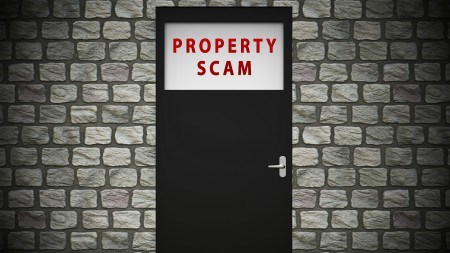No industry is immune from cyber crime. Protecting your business as a real estate agent, and protecting your clients, is a priority.
No industry is immune
Our global reliance upon online platforms, social media, and the internet at large, cannot be ignored. There’s not an industry or sector that’s been left unaffected or untransformed by the digital age, and real estate is no different. Protecting your business in the real estate industry, and your clientele’s personal information is a fundamental priority. As the South African Banking Risk Information Centre (SABRIC) revealed during an Annual Crime Statistics Report for 2018, digital crime has increased by 4.9% over the past year, with more than R2.6 million lost to cyber crime in South Africa during the same year.
How to protect yourself
Protecting your personal information is step one of protecting your real estate business against cyber crime, especially considering that a large portion of cyber crime incidents occur as a result of ‘innocuous’ phishing attempts or user error. To protect your own personal information, we recommend:
- Regularly change your passwords: For every online service you use, don’t use the same password across platforms. We’d also recommend using a password manager, like LastPass, instead of generating your own, often easily hackable, passwords.
- Sign up for good services: A number of services exist online that alert you to when your details have been compromised in a hacking attempt or large-scale data loss. Haveibeenpawned will send you an email the moment your email address is found in a database that has been compromised during a data breach.
- Implement two-factor authentication: We know, it’s annoying to have to log in on your browser and then log in again via your mobile phone, just to get into your email, but two-factor authentication is an absolute must for protecting your personal information.
- Don’t click the link: Clicking a link sent to you in an email, especially when you’re not sure of who sent it, is a simple no-go.
- Always check the URL: Phishing attempts succeed because people don’t always read. No matter what you’re doing online, always check that the website you’re visiting is indeed the authentic one. And, if you’re even 1 percent uncertain on its authenticity, don’t submit any personal details, log in, or share any data with the website.
- Secure your transactions: Making sure that all your transactions and communications with your clientele is important. Speak to your IT Department, or service provider, about the network security, firewall, and access authorisation policies applicable to your agency. Make cyber security a priority for everyone throughout your business, and ensure that all required policies and procedures are strictly followed.
Online scams
Online scams take on a variety of different forms, but the real estate industry seems to be inundated with scammers trying their luck. Identity theft is a relatively common occurrence in the real estate industry, with scammers signing leases, or purchase offers, using someone else’s stolen identity. Similarly, payment and credit card fraud is all too easy to perpetrate, so don’t be fooled by fake SMS payment alerts, or fraudulent proof of payment documentation. Keep your eye out for any potential scams relating to online leads, and rather stay on the safe side of life.
Read more: Report online lead scams here.
How to spot a scammer
Scammers are, unfortunately, all too common in the real estate industry. At Private Property, we work hard to empower home-hunters and real estate agents to identify and weed out potential scams. We’ve created two short guides to help you:
Rental scams: Rental scams, and tenants who commit identity fraud, can cause a boatload of damage to properties, your agency, and your clients. Learn how to spot a potential tenant scam.
Fake buyers: Identity theft and fraudulent transactions can be highly destructive in the property market. Unfortunately, the best way to prevent this level of destruction is to stay alert, no matter how much you may be tempted towards letting your guard down for a seemingly eager buyer. Learn how to spot a fake buyer.
Your real estate business
Taking cyber security seriously, and actively working to prevent cyber crime, must be taken seriously throughout your agency and your network of real estate agents. The best defense against cyber crime always begins with planning for the eventuality of it. For that reason, we recommend creating a cyber security plan for your business, as your first step towards preventing cyber crime. Your cyber security plan should include:
- Consulting an expert: Finding a reputable cyber security service provider, who can help you create and implement a cyber security plan.
- Creating a chain of responsibility: Working much like a phone tree, having a chain of responsibility that kicks into action when cyber crime occurs, is important.
- Internal education programmes: Make sure every member of your team is fully briefed in terms of your IT policies and procedures, and that these are adhered to.
- Asset management: A stolen laptop does not only result in an insurance claim. It can be the cause of a significant data breach for your business, and its clientele. Create and implement well-structured asset management policies.
- System management: Improving your business’ online security mechanisms, email server security, and access facilities, is important. It’s also vitally important that, should someone leave your agency or employment, their ability to access your company information is completely blocked from the very moment they leave.
For more information on how to protect your real estate business and your clientele from cyber crime, visit our Advice Centre.



